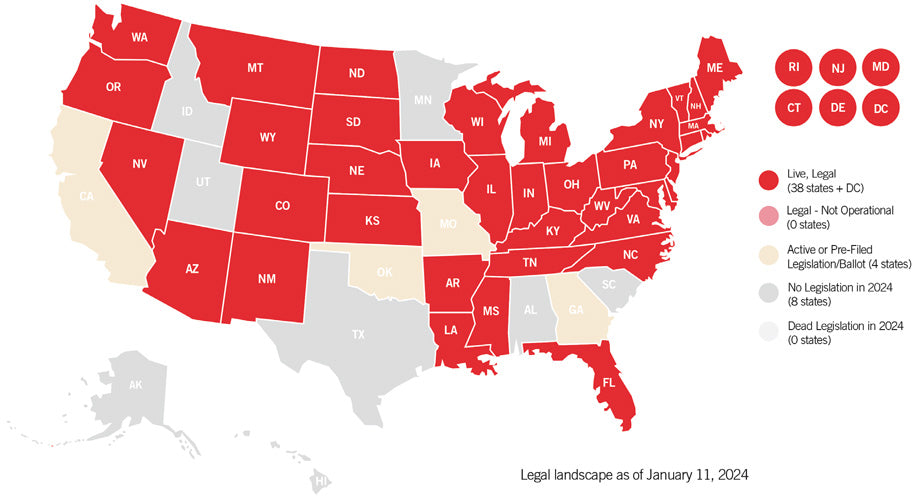The growth of legalized gambling post PASPA repeal
This is an excerpt from Business of Sports Betting epub, The by Becky Harris,John T Holden,Gil Fried.
The idea of repealing state gambling laws was dubbed “the nuclear option,” as many speculated that it was ludicrous to repeal laws related to gambling. However, New Jersey was determined to have sports betting, and instead of engaging in a blanket repeal of its gambling laws, the state engaged in a precision repeal that accomplished effectively the same thing as the express authorization. New Jersey’s second effort to bring sports betting brought much the same end result as their initial effort would have when they passed a law affirmatively authorizing sports betting. Predictably, the governor was sued once again. Again, New Jersey was unsuccessful at the district court and the court of appeals; this time, however, the Supreme Court agreed to hear the appeal. On May 14, 2018, Justice Samuel Alito ruled that PASPA violated the anti-commandeering principle of the U.S. Constitution, effectively ending the 25-year prohibition on the expansion of sports wagering (NCAA v. Murphy, 138 S. Ct. 1461 (2018)).
The end of the New Jersey litigation meant that states were free to legalize sports betting for the first time in nearly 25 years. Even before the Supreme Court’s ruling, some states had begun to pass laws that would take effect when the law was ruled unconstitutional or Congress acted to repeal it. Within three weeks of the Supreme Court’s decision, Delaware was accepting bets on single-game events. In rapid succession New Jersey, Mississippi, Pennsylvania, West Virginia, and Rhode Island all launched legal sports betting. Joining these states was New Mexico, which authorized Tribal gaming properties to offer sports wagering.
Contemporary Market
Since the Supreme Court’s ruling, 38 states, the District of Columbia, and Puerto Rico (as of this writing) have legalized sports gambling (figure 1.1), and virtually every state has at least explored the possibility of legalizing sports gambling. The legal sports betting market has seen legislators following two primary objectives:
- An effort to recapture some of the money that goes to illegal or unregulated gambling operators. This objective seeks to bring back a portion of the estimated $150 billion that is wagered illegally every year (Povich, 2018). Of that $150 billion, which is often called the handle, sportsbooks keep only a small amount, historically about 5 percent; this 5 percent is called the hold.
- An effort to find new mechanisms for funding state budgets that do not call for raising citizens’ taxes.

American Gaming Association
SHOP

Get the latest insights with regular newsletters, plus periodic product information and special insider offers.
JOIN NOW


